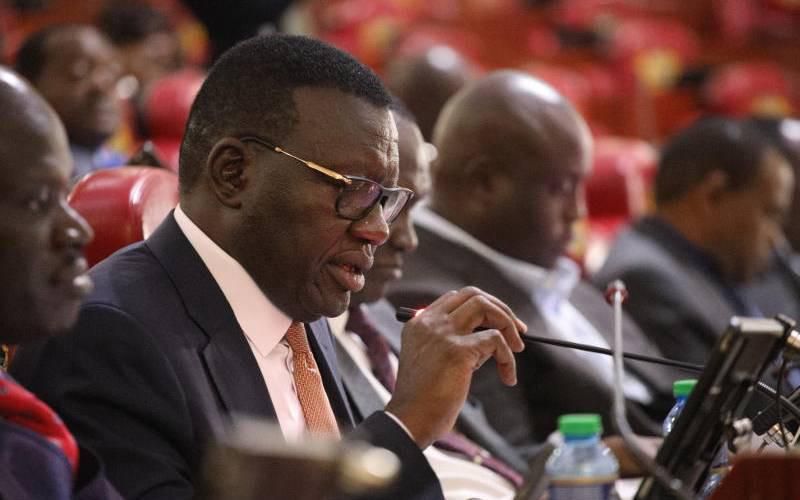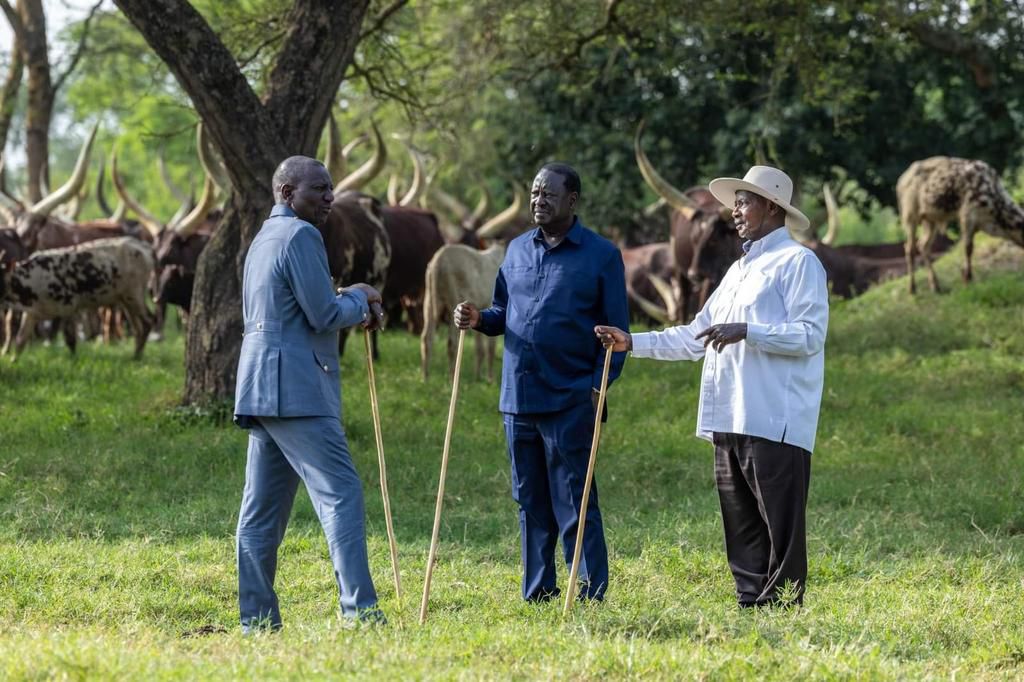Kenya bows to Uganda's pressure in oil importation fued
)
Kenya has taken steps to accommodate Uganda's request to directly import fuel through the Kenya Pipeline Company (KPC).
Energy Cabinet Secretary Davis Chirchir, addressing the National Assembly on Wednesday, confirmed that efforts are underway to issue a permit to the Uganda National Oil Corporation (Unoc).
This will enable Uganda to directly importation of fuel through Kenya's pipeline infrastructure.
According to Chirchir, the decision to grant Unoc the license represents a mutual opportunity rather than a concession.
He explained that the use of Kenya's pipeline by Uganda is a beneficial arrangement for both nations.

"You will see Unoc getting a licence and then we will see how to work together because usage of our pipeline is an opportunity for us,” he stated, highlighting the collaborative approach being adopted to resolve the ongoing challenge.
The dispute, which recently escalated to a lawsuit filed by Uganda against Kenya at the East African Court of Justice, revolved around Kenya's initial refusal to grant Unoc a license to operate within its borders and handle fuel imports destined for Uganda.
This refusal was perceived by Uganda as a violation of a prior agreement and an impediment to its national interests, particularly in light of its efforts to secure more favorable terms for its fuel imports.
Uganda's President Yoweri Museveni had openly criticized the situation, attributing the high fuel prices in Kampala to the monopolistic practices of Kenyan middlemen and the lack of direct access to fuel imports.
In November 2023, Uganda Cabinet approved a plan to cut oil imports via Mombasa.
Currently, Uganda imports 90% of its petroleum products through the port of Mombasa.
The country started exploring other alternatives including using Tanzania and bypassing Kenya.

The legal action showed the serious diplomatic rifts between the two nations, raising concerns about the future of regional cooperation within the East African Community (EAC).
However, the latest announcement by Kenya's Energy Cabinet Secretary suggests a thawing of tensions and a move towards diplomatic and pragmatic solutions.
By allowing Unoc to directly import fuel through KPC, both countries stand to benefit from improved efficiency in fuel transportation and potentially lower fuel prices in Uganda, addressing one of the key grievances that led to the dispute.
The backstory to this development involves a complex mix of trade policies, regional dynamics, and national interests.
Uganda's lawsuit and the subsequent diplomatic engagements highlight the delicate balance between sovereign rights and regional cooperation, especially in matters of economic significance like oil importation.

)
)
)
)
)
)